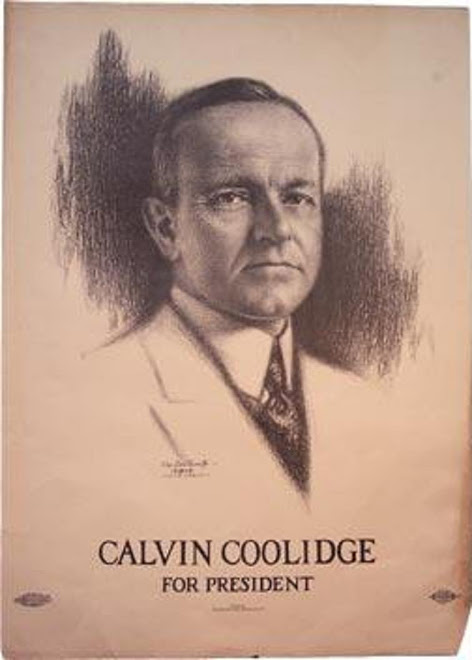UPDATED
Fed chairman Alan Greenspan, in recent testimony before Congress, suggested several ways to deal with the impending deficit in Social Security receipts*. One of those ways is to index Social Security payments to a "true" cost-of-living index. According to Greenspan, who is picking up on the findings of the "Boskin report" -- a study done for the Senate Finance Committee in 1996 -- the CPI systematically overstates increases in the cost of living.
How is that? Quoting from the
executive summary of the Boskin report:
There are several categories or types of potential bias in using changes in the CPI as a measure of the change in the cost of living. 1) Substitution bias occurs because a fixed market basket fails to reflect the fact that consumers substitute relatively less for more expensive goods when relative prices change. 2) Outlet substitution bias occurs when shifts to lower price outlets are not properly handled. 3) Quality change bias occurs when improvements in the quality of products, such as greater energy efficiency or less need for repair, are measured inaccurately or not at all. 4) New product bias occurs when new products are not introduced in the market basket, or included only with a long lag.
I agree that the second, third, and fourth biases are a problem. But I disagree with respect to the substitution bias. Why? Let's start with this excerpt of
part IV of the report:
The "pure" substitution bias is the easiest to illustrate. Consider a very stylized example, where we would like to compare an initial "base" period 1 and a subsequent period 2. For simplicity, consider a hypothetical situation where there are only two commodities: beef and chicken. In period 1, the prices per pound of beef and chicken are equal, at $1, and so are the quantities consumed, at 1 lb. Total expenditure is therefore $2. In period 2, beef is twice as expensive as chicken ($1.60 vs. $0.80 per pound), and much more chicken (2 lb.) than beef (0.8 lb.) is consumed, as the consumer substitutes the relatively less expensive chicken for beef. Total expenditure in period 2 is $2.88.
The simplest comparison is to ask "How much more must I spend in my current situation (period 2) to purchase the same quantities that I purchased initially (in period 1)?"22 This is the question asked by the CPI. The price index for period 2 relative to period 1 uses the initial period 1 basket of consumption as the weights in the computation. To buy 1 lb. of beef and 1 lb. of chicken in period 2 costs $2.40. The price index for period 2 relative to period 1 is 1.20 (2.40/2.00), that is a 20 % increase.
Intuitively, it is easy to understand why such a computation imparts an upward (substitution) bias to the measure of the change in the true cost of living. It assumes the consumer does not substitute (cheaper) chicken for beef. In the real world, as in the hypothetical example, consumers change their spending patterns in response to changes in relative prices and, hence, partially insulate themselves from price movements.
Okay, consumers tend to substitute cheaper products for more expensive products as relative prices change. So what? The consumer was happy with 1 pound of beef and 1 pound of chicken before the price of beef went up relative to the price of chicken. Now the consumer will have to spend 20 percent more to be just as happy as she was before. That's a good measure of the increase in her cost of living. Or to put it another way, she would have to spend 20 percent more in order to maintain a constant standard of living.
It's true that tastes change with time, which is why the Bureau of Labor Statistics occasionally changes the "market basket" of goods and services it uses in computing the CPI. But, in the short run, the consumer is definitely worse off when prices rise, because she has to buy less of something she likes and more of something she likes less. In that respect, the CPI gets it right.
Aside from the substitution effect, how much does the CPI really overstate the cost of living? Table 3 in
part VI of the report summarizes the effects of the various types of bias. As of 1996 -- taking into account recent and prospective changes in the computation of the CPI -- the report estimated that the CPI would overstate increases in the cost of living by 1.1 percentage points a year. But 0.4 percentage points of that total is accounted for by substitution bias. That leaves about 0.7 percentage points for other types of bias, which can add up over the years. In 10 years, for example, an overstatement of 0.7 percent in the CPI would cause Social Security benefits to rise 7 percent more than necessary in order to maintain a constant standard of living.
Bottom line: Greenspan may be right to urge the adoption of a more realistic cost-of-living index for Social Security, but that index won't be realistic if it doesn't handle the substitution bias correctly.
UPDATE:
A
working paper by Robert Gordon (a co-author of the Boskin report), published by the National Bureau of Economic Research in June 2000, says that changes to the method of calculating CPI made in the wake of the Boskin report have reduced the CPI's overstatement of the cost of living from 1.1 percentage points to 0.65 percentage point. The changes, however, include corrections for the "bias" due to the substitution effect, which isn't really a bias, as I argue above.
A
note on the Bureau of Labor Statistics website, dated 02/20/02, discusses the creation of a new index called the Chained Consumer Price Index (C-CPI), which supplements but does not supplant the CPI. The C-CPI attempts to correct for the substitution effect across item categories (e.g., if the price of cigarettes goes up, consumers buy more bread). The same note says that the basic CPI was adjusted in 1999 to capture the effects of substitution within product categories (e.g., if the price of bourbon goes up, consumers buy more beer). So, in spite of all logic (or at least my logic), the CPI and its companion index have eliminated the so-called substitution bias.
Those are the key points I have been able to glean by searching the BLS website and by Googling. The business of computing price indices is exceedingly murky and complex. It's safe to say that price indices are approximations wrapped in estimates surrounded by great statistical uncertainties. Changes in the CPI could well overstate (or understate) changes in the cost of living by 100 percent and we'd never know the difference. Anyway, as the BLS wisely says somewhere on its site (or perhaps it was in the Boskin report), the cost of living is a personal thing that can't really be captured by an index.
I'm sorry I started this. I'll never write on the subject again -- I think.
__________
*Of course, the real solution to the impending deficit in Social Security receipts is to privatize Social Security. But that's another argument, which I've already made
here.


